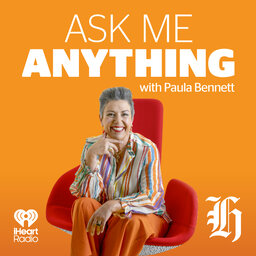How to get on the property ladder with Ed McKnight
This week, Paula's guest is Property Academy Podcast co-host and resident economic for Opus Partners, Ed McKnight. He shares advice for getting on the property ladder, including how to maximise the 'no-cash method', where to buy and what sort of homes to look at, and what to know about maintenance. Plus, he discusses his former life studying opera and the lengths he went to get a first job.
 Ask Me Anything with Paula Bennett
Ask Me Anything with Paula Bennett


